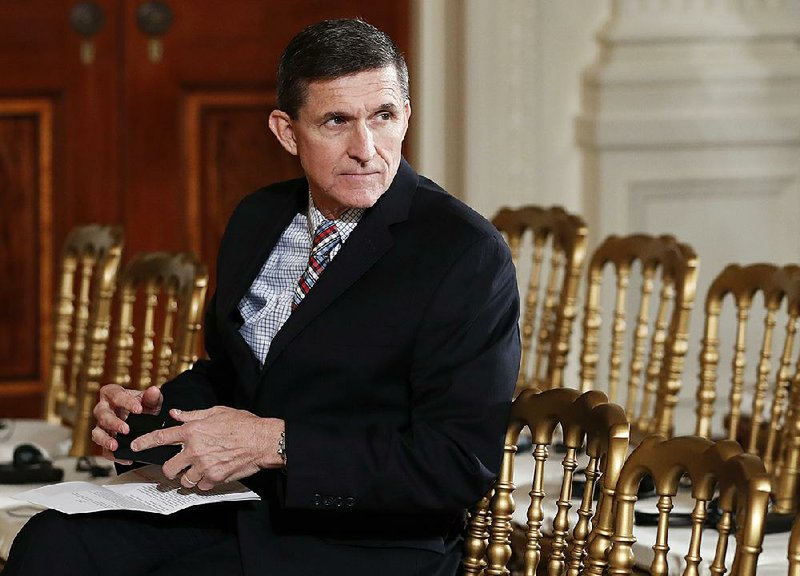WASHINGTON -- President Donald Trump's former national security adviser, Michael Flynn, is at odds with his former Turkish client over two unusual payments totaling $80,000 that Flynn's firm sent back last year to the client. The disagreement points to inconsistencies in Flynn's accounts to the U.S. government about his work for foreign interests.
RELATED ARTICLES
http://www.arkansas…">Trump: Talk with Russian 'good' http://www.arkansas…">Griffin: Quizzed over Turk exile, charter schools
Flynn's company, Flynn Intel Group, told the Justice Department in March that the two $40,000 payments were consulting fees for unspecified work. But Turkish businessman Ekim Alptekin has told The Associated Press that the payments from Flynn's firm were refunds for unperformed lobbying.
Flynn's foreign business relationships and the veracity of his disclosures are under scrutiny by congressional, military and intelligence inquiries. The Senate intelligence committee said late Wednesday it issued a subpoena to compel Flynn to turn over documents related to its investigation into Russian interference with the 2016 election.
Flynn attorney Robert Kelner declined to comment on the newly issued subpoena. Flynn previously had been in talks with the committee about agreeing to be interviewed as long as he was granted immunity.
[PRESIDENT TRUMP: Timeline, appointments, executive orders + guide to actions in first 100 days]
Other congressional committees and the Pentagon's inspector general separately are examining whether Flynn was fully forthcoming about his foreign contacts and earnings from organizations linked to the governments of Russia and Turkey. His firm's Turkish work occurred while he was a top Trump campaign adviser.
On Monday, former Deputy Attorney General Sally Yates told senators that Flynn's misstatements about his contacts with Russia's ambassador to the U.S. raised concerns that he could be targeted for blackmail. Yates also cited the possibility that Flynn could have broken federal law by operating as a paid foreign agent for the Turkish client without U.S. government permission.
The Senate intelligence committee said it had previously asked Flynn on April 28 to voluntarily turn over the records it requested, and Flynn declined.
Flynn told the Justice Department in March that Flynn Intel was paid $530,000 for operating as a foreign agent for Alptekin's firm, Inovo BV, and performing work that could have benefited the Turkish government. That filing -- prompted by Justice Department pressure -- came just weeks after Trump fired Flynn from his national security post. The president has said he made the decision after it became clear Flynn had misled Vice President Mike Pence about conversations with Russia's ambassador to the U.S.
The paperwork Flynn filed with the Justice Department raised new questions because it cited two consulting payments back to Alptekin's company without specifying what, if any, work was performed.
Alptekin said in an email that the payments were refunds guided by a verbal agreement he worked out last year with Flynn Intel that set out how much the firm was to receive each month for lobbying and other contractual work. When Alptekin didn't see any lobbying work, he said, he asked Flynn Intel to refund $80,000 to his firm.
Flynn's filing with the Justice Department did not disclose those discussions or the payment arrangements cited by Alptekin.
The U.S. foreign agent law requires disclosure of all written and verbal contracts and modifications. National security law experts said the failure to disclose such discussions could spur additional scrutiny of Flynn if Justice Department officials were to determine the missing material was legally significant.
A Section on 05/11/2017
